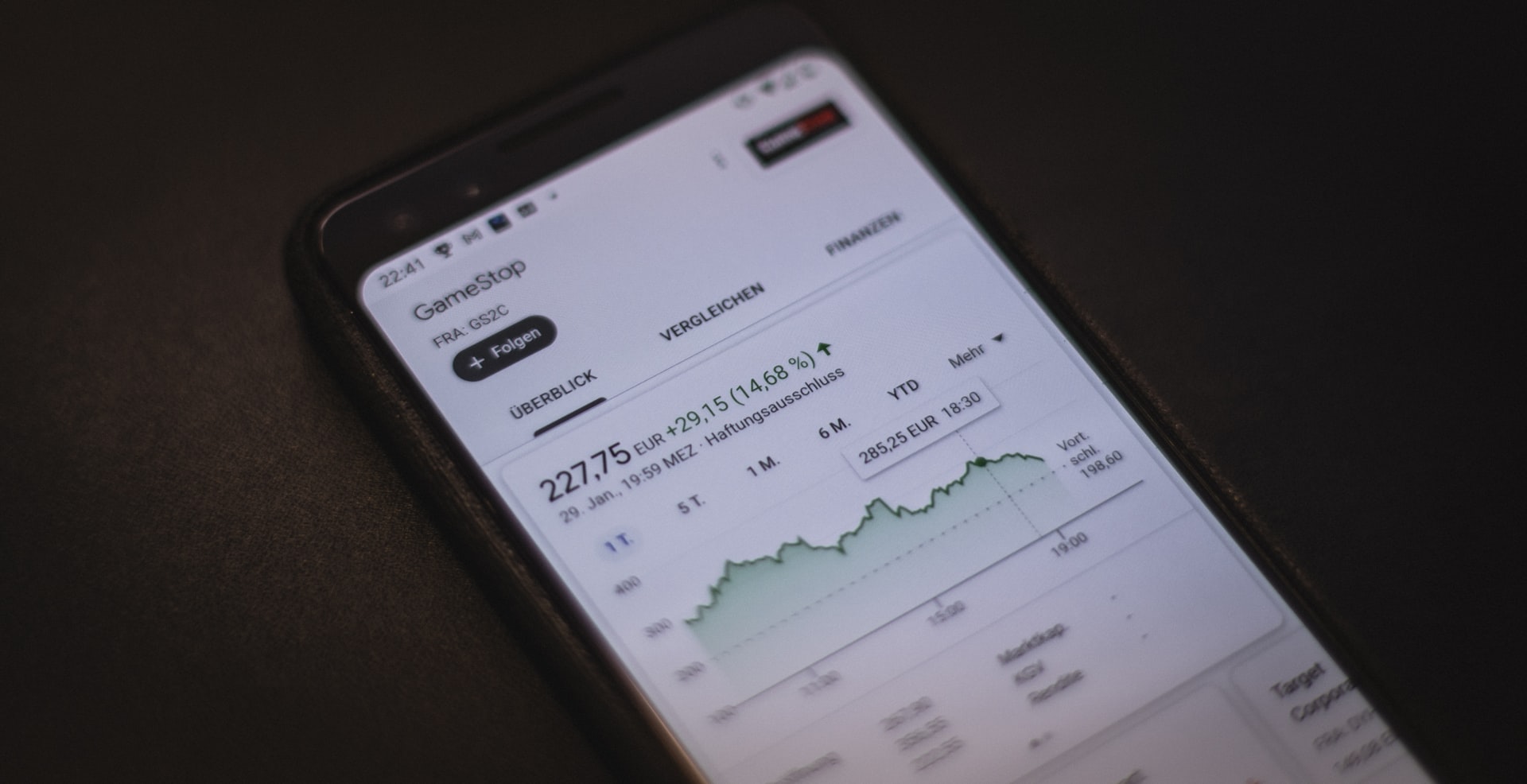Economy
How to Invest in Stocks in Nigeria: Guide for Beginners

One of the most efficient and successful ways of building wealth over a long period of time is through investing in stocks.
All the most successful people have dedicated themselves to investing. One of the prime examples of stock investors is Warren Buffet.
Investing in stock allows you to invest your money in a company and reap the benefits of the company’s growth through the years.
The biggest misconception that exists or existed is that there’s a barrier to entry due to large funds being involved in the stock market. But it’s not at all true. With the technology and facilities that exist today, you can invest as little as N500 to start.
As an investor who is looking to invest in stocks, you need to start by depositing money into an online investment account. From there onwards, you can find yourself a suitable investment broker and start investing in stocks.
How do you invest in stocks?
You always hear some of your friends say that they have started investing in stocks, but you are unaware of how to do it? Or what is it all about?
In this guide, we will help you clearly understand all the steps and procedures needed to start investing in stocks or trading them.
- Choose how you want to invest
There are so many different ways to start investing in stocks, but the first and foremost question you need to answer is that whether you need help with your investments or whether you are aware of what you are doing and you know which stocks to buy.
If you are someone who knows what stocks they want to buy, then it is best that you start off by opening an individual account with a stockbroker and start investing in stocks as per your investment strategy.
If you are someone who needs help with your investments, then it’s ideal to invest in mutual funds or ETFs. Mutual funds are managed by qualified professionals and there are many funds with different investment strategies. Some invest in gold, some in equities etc. and you can choose one based on which markets you want to invest in. Mutual funds are usually safe since they are regulated and managed by professionals.
With a mutual fund, you don’t need to do any research on your own. There is someone who is willing to do all the work for you for a small fee. Everything is taken care of and you needn’t do much apart from providing funds for investments.
- Create your investment plan
Before you begin investing in stocks, the question you will need to ask yourself is why are you interested to invest? Is it because you want to make quick money? Or you want to have a secure source of income for the long term?
As an investor, you need to decide whether you are looking at short term or long-term gains. There’s no doubt that you can make money with short term as well as long-term investing but long-term investing mitigates risks like short-term market volatility and gives you a more secure investment.
Let me explain short-term and long-term through an example. Due to COVID-19, the markets fell by as high as 40 per cent, but within a few months, the market recovered and has since then recovered all the losses.
So, if you were a short-term investor buying a stock, you would likely have lost a lot of money due to market crash had you not held on until the market regained. But if you were a long-term investor, these market conditions wouldn’t have affected your investments a lot.
Long term investors generally focus on value investing and select companies they want to invest in for many years. While short-term investors focus on trading and making money from market movements.
So, set your goals accordingly, don’t expect your money to double over a day or a week, the prices of stocks gradually increase and your wealth gets accumulated over years. This is why you need to be patient and allow market forces to react and drive your prices up. If you have chosen a good company to invest in, then you can be certain that the prices will go up in a few years.
Use a savings and investment compound calculator tool to manage your goals, plan your investments and decide how much you want to save or gain in 10 years.
If you made a small investment as little as 38,12,500 Naira in S&P 500 Index 30-40 years ago, then would have been a millionaire today. This is what the stock market can do for you.
Here’s an example for you that gives you a rough idea about how much you can earn with a small investment over a long period of time:
If you start with N38,050.00 in a savings account earning a 7 per cent interest rate, compounded monthly, and make N3,805.00 deposits on a monthly basis.
After 10 years, your savings account will have grown to N738,897.07 of which N494,650.00 is the total of your beginning balance plus deposits, and N244,247.07 is the total interest earnings.

- Open a trading account
If you are looking to invest in local companies, you can check the Nigerian Exchange (NGX) Limited and choose a stockbroker that will allow you to invest in NGX.
But if you want to invest in international companies that are not listed on the NGX but listed somewhere like New York Stock Exchange (NYSE), then you can choose an online trading platform such as Bamboo, Chaka, Weath.ng etc.
If you are only looking to trade securities i.e., buy or short sell them for the short term, then you can also trade stock CFDs via a Tier-1 licensed forex broker or you can trade stock options via an international broker that accepts Nigerian clients.
As per research by Forex Brokers SA, there are no locally regulated CFD brokers in Nigeria but there are 40+ FSCA regulated South African derivative brokers that accept traders from Nigeria. These brokers offer NASDAQ, American and European stock CFDs.
There are several online platforms in Nigeria that allow you to invest in stocks all around the world, so choose a platform that allows you to invest in a wide variety of stocks and other commodities.
For new investors who are not aware of how the market functions or you are not familiar with the investment process, its highly advisable that you open your account through a Mutual Fund advisor so they can assist you with the entire process and you also will be able to learn and adapt quickly.
Every online platform or stockbroker requires you to complete KYC before you start trading as it’s mandatory. You would normally be asked for your BVN number, ID proof and address proof.
Make sure you provide the correct details and original documents for verification. If there is an error in KYC documents, then there are high chances that you will not be allowed to open your account or likely face issues during withdrawals.
- Decide which stocks do you want to buy
Once you have opened your trading account; you can view all the stocks available on the platform or what the stockbroker offers.
Experienced investors diversify their investments into different stocks and other asset classes like metals, commodities since it is more secure and helps you build a diverse portfolio.
So, avoid investing in just one company, look around the platform and view what other options you might have.
A word of advice to new investors is that don’t invest in every stock you see; you need to understand what the company does and what their business is. After you understand everything about a company and how it is doing, you can further decide to invest in it.
If you are considering investing in a particular company, then you might want to calculate their intrinsic value, which would include analysing the margin of safety, EPS, book value, cash flow and earnings before interest, taxes, depreciation, and amortization (EBITDA).
Once you are aware of all these things, then it will help you make an informed decision.
- Make a budget
The budget is entirely dependent on your lifestyle.
First list all your expenses and take away money for your rent, utilities and groceries and keep it away. The next is to list all your debts and liabilities such as loan repayment, EMI etc.
Once you know what you need for your necessities and liabilities, you will know how much you can spare every month. After this, it will be easy for you to see how much you can invest every month.
One of the biggest mistakes that new investors make is that they will not be able to invest regularly due to other commitments.
So, if you are planning to start investing then make sure that you are regular with your investments. If you make a plan that you will invest N50,000 (approx. $100) every month, no matter what then make sure you do it.
If you feel that there may be an emergency, then save a small amount of money from your income every month so that you can use that fund for emergencies. This way, you needn’t take money from your investments.
If you ensure that a minimum of 40 per cent of your income goes into investments then in 10 years’ time you will definitely start reaping the rewards for years of investment. So, make sure you can invest as much as you can after covering your expenses and liabilities.
There’s a famous saying that if you can’t buy something twice then you can’t afford it. Try cutting down all your expensive wants so you can invest and grow your investments.
A good place for investors with low funds is Exchange Traded Funds (ETF) since the minimum investment requirements are very low.
Warren Buffett once said in his investor letter “The goal of the non-professional should not be to pick winners — neither he nor his “helpers” can do that — but should rather be to own a cross-section of businesses that in the aggregate are bound to do well. A low-cost S&P 500 index fund will achieve this goal.”
- Diversify and manage your portfolio
You can only fully gain from stock market investments over a period of time. Building a diverse portfolio enables you to park your money into more than a single asset class. This is not only safer but it’s less risky than investing all your money into one stock.
If in case the stock that you are invested in crashes, then you lose your entire investment. So, it’s always better to invest in more than one stock. Non-professionals should invest in blue-chip stocks only, or the index fund.
If you are finding it hard to diversify your investments, then invest in a Mutual Fund. Even if you are investing in a mutual fund, then you also need to be absolutely sure about all the costs, fees, expected returns and risks involved with that too.
Another big advantage of building a diverse portfolio is that it will help you fight market volatility without suffering major losses. Since your investments are tied into different stocks, assets, it will lower the risks that come with markets.
You should look at stock market investing as a long-term process rather than checking daily returns and let your investments handle themselves. You should just wait for your investments to mature.
Conclusion
Investing in stocks is a good way to building long term wealth but it requires you to be patient and regular with your investments. If you are looking for short term gains then stock market investments aren’t the best option for you.
If you are regular with your investments, it can almost be assured that a good portfolio might even allow you to retire early.
Also, be fully aware of the risks, and don’t invest money that you cannot afford to lose. Do your full research & invest wisely.
Economy
FG Targets Credit Access For 50% Workers By 2030

By Adedapo Adesanya
The Vice President, Mr Kashim Shettima, inaugurated the Board of the Nigerian Consumer Credit Corporation (CREDICORP) and gave a 50 per cent access target for workers, saying consumer credit was critical to Nigeria’s ambition of becoming a one-trillion-dollar economy by 2030.
According to him, President Bola Tinubu established the CREDICORP to build a trusted credit infrastructure, provide catalytic capital to lower borrowing costs, and help Nigerians overcome long-standing cultural resistance to credit.
Speaking on Thursday in Abuja when he inaugurated the board on behalf of the President, the Vice President, in a statement by his spokesman, Mr Stanley Nkwocha, said that the quality of life of Nigerians cannot improve without closing the gap between access to capital and human dignity.
“A civil servant who earns honestly does not have to chase sudden wealth just to buy a vehicle, or save for ten years to buy one. A young professional should not remain in darkness simply because solar power must be paid for all at once,” the Vice President said.
VP Shettima disclosed that in just one year of operations, CREDICORP has disbursed over ₦37 billion in consumer credit to more than 200,000 Nigerians, with over half of them accessing formal credit for the first time.
The Vice President said the organisation was specifically tasked with building credit infrastructure to bridge the trust gap between lenders and borrowers, providing wholesale capital and credit guarantees through its portfolio company.
“Ultimately, these critical jobs of CREDICORP will enable access to consumer credit to at least 50 per cent of working Nigerians by 2030,” he said.
The Vice President explained that the new board’s role was not ceremonial as they are custodians of the organisation’s mission, adding that the long-term strength of the institution would depend on their “vigilance, integrity, sacrifice, and commitment.”
He directed Board members to uphold Public Service Rules, the Board Charter, and all applicable governance frameworks, warning that accountability and stewardship of public resources were non-negotiable.
The Chairman of CREDICORP, Mr Aderemi Abdul, expressed appreciation to President Tinubu for his vision behind the formation of CREDICORP and for the confidence reposed in them, noting that the establishment of the corporation marked an important step towards strengthening the nation’s financial architecture.
He assured President Tinubu that the board understands its responsibility and will guide the institution to deliver meaningful benefits to Nigerians.
For his part, Mr Uzoma Nwagba, Managing Director/CEO of CREDICORP, recalled watching President Tinubu say 20 years ago that consumer credit is one of the major tools that will improve the lives of Nigerians.
He noted that over the past 18 months, the institution has benefited more than 200,000 Nigerians, including students.
He assured that the presidential vision behind CREDICORP would not be taken lightly, as the team considers their appointments a unique, once-in-a-lifetime opportunity.
Other members of the board inaugurated include Mrs Olanike Kolawole, Executive Director, Operations; Mrs Aisha Abdullahi, Executive Director, Credit and Portfolio Management; Mr Armstrong Ume-Takang (MD, MoFI), Representative of MoFI; Mrs Bisoye Coke-Odusote (DG, NIMC), Representative of NIMC; and Mr Mohammed Naziru Abbas, Representative of FMITI.
Others are Mr Marvin Nadah, Representative of FCCPC; Mrs Chinonyelum Ndidi, Representative of the Federal Ministry of Finance; Mr Mohammed Abbas Jega, Independent Director; and Mrs Toyin Adeniji, Independent Director.
Economy
NASD OTC Exchange Rallies 0.23% as Nipco Leads Six Advancers

By Adedapo Adesanya
Six price gainers helped the NASD Over-the-Counter (OTC) Securities Exchange retain its stay in green territory after a 0.23 per cent appreciation on Thursday, February 26.
The price gainers were led by Nipco Plc, which added N25.00 to close at N278.00 per share compared with the previous day’s N253.00 per share, NASD Plc rose by N5.13 to N56.41 per unit versus N51.28 per unit, FrieslandCampina Wamco Nigeria Plc expanded by N2.24 to N102.44 per share from N100.00 per share, Afriland Properties Plc grew by 88 Kobo to N18.88 per unit from N18.00 per unit, 11 Plc increased by 35 Kobo to N277.00 per share from N276.65 per share, and Lagos Building Investment Company (LBIC) Plc gained 27 Kobo to close at N3.75 per unit versus N3.48 per unit.
On the flip side, Central Securities Clearing System (CSCS) Plc lost N1.75 to sell at N68.25 per share versus N70.00 per share, and Geo-Fluids Plc depreciated by 2 Kobo to N3.25 per unit from N3.27 per unit.
The weight of the advancers fortified the NASD Unlisted Security Index (NSI) by 9.21 points to 4,034.46 points from 4,025.25 points, and the market capitalisation soared by N5.51 billion to N2.413 trillion from Wednesday’s N2.408 trillion.
Yesterday, the transaction value jumped by 18.8 per cent to N102.8 million from N80.7 million, and the number of deals surged by 18,8 per cent to 38 deals from 32 deals, while the transaction volume went down by 84.9 per cent to 1.3 million units from 8.7 million units.
At the close of business, CSCS Plc was the most traded stock by value (year-to-date) with 34.2 million units worth N2.04 billion, followed by Okitipupa Plc with 6.3 million units sold for N1.1 billion, and Geo-Fluids Plc with 122.1 million units valued at N478.2 million.
Resourcery Plc remained as the most traded stock by volume (year-to-date) with 1.05 billion units exchanged for N408.7 million, trailed by Geo-Fluids Plc with 122.1 million worth N478.2 million, and CSCS Plc with 34.2 million units traded for N2.04 billion.
Economy
Naira Down Again at NAFEX, Trades N1,359/$1

By Adedapo Adesanya
The Naira further weakened against the Dollar in the Nigerian Autonomous Foreign Exchange Market (NAFEX) for the fourth straight session this week on Thursday, February 26.
At the official market yesterday, the Nigerian Naira lost N3.71 or 0.27 per cent to trade at N1,359.82/$1 compared with the previous session’s N1,356.11/$1.
In the same vein, the local currency depreciated against the Pound Sterling in the same market window on Thursday by N8.27 to close at N1,843.23/£1 versus Wednesday’s closing price of N1,834.96/£1, and against the Euro, it crashed by N8.30 to quote at N1,606.89/€1, in contrast to the midweek’s closing price of N1,598.59/€1.
But at the GTBank forex desk, the exchange rate of the Naira to the Dollar remained unchanged at N1,367/$1, and also at the parallel market, it maintained stability at N1,365/$1.
The continuation of the decline of the Nigerian currency is attributed to a surge in foreign payments that have outpaced the available Dollars in the FX market.
In a move to address the ongoing shortfall at the official window, the Central Bank of Nigeria (CBN) intervened by selling $100 million to banks and dealers on Tuesday.
However, the FX support failed to reverse the trend, though analysts see no cause for alarm, given that the authority recently mopped up foreign currency to achieve balance and it is still within the expected trading range of N1,350 and N1,450/$1.
As for the cryptocurrency market, major tokens posted losses over the last 24 hours as traders continued to de-risk alongside equities following Nvidia’s earnings-driven pullback, with Ripple (XRP) down by 2.7 per cent to $1.40, and Dogecoin (DOGE) down by 1.6 per cent to $0.0098.
Further, Litecoin (LTC) declined by 1.3 per cent to $55.87, Ethereum (ETH) slipped by 0.9 per cent to $2,036.89, Bitcoin (BTC) tumbled by 0.7 per cent to $67,708.21, Cardano (ADA) slumped by 0.6 per cent to $0.2924, and Solana (SOL) depreciated by 0.4 per cent to $87.22, while Binance Coin (BNB) gained 0.4 per cent to sell for $629.95, with the US Dollar Tether (USDT) and the US Dollar Coin (USDC) closing flat at $1.00 each.
-

 Feature/OPED6 years ago
Feature/OPED6 years agoDavos was Different this year
-
Travel/Tourism10 years ago
Lagos Seals Western Lodge Hotel In Ikorodu
-

 Showbiz3 years ago
Showbiz3 years agoEstranged Lover Releases Videos of Empress Njamah Bathing
-

 Banking8 years ago
Banking8 years agoSort Codes of GTBank Branches in Nigeria
-

 Economy3 years ago
Economy3 years agoSubsidy Removal: CNG at N130 Per Litre Cheaper Than Petrol—IPMAN
-

 Banking3 years ago
Banking3 years agoSort Codes of UBA Branches in Nigeria
-

 Banking3 years ago
Banking3 years agoFirst Bank Announces Planned Downtime
-

 Sports3 years ago
Sports3 years agoHighest Paid Nigerian Footballer – How Much Do Nigerian Footballers Earn

















